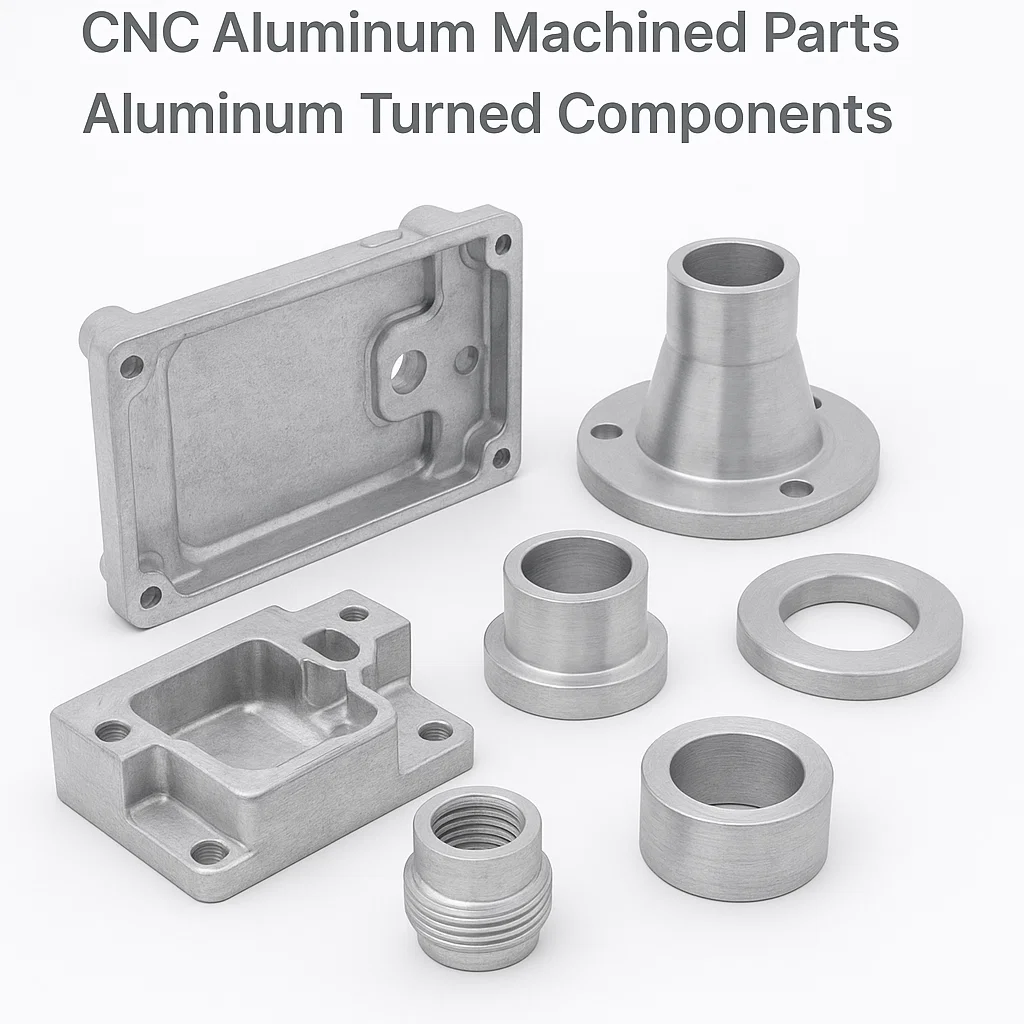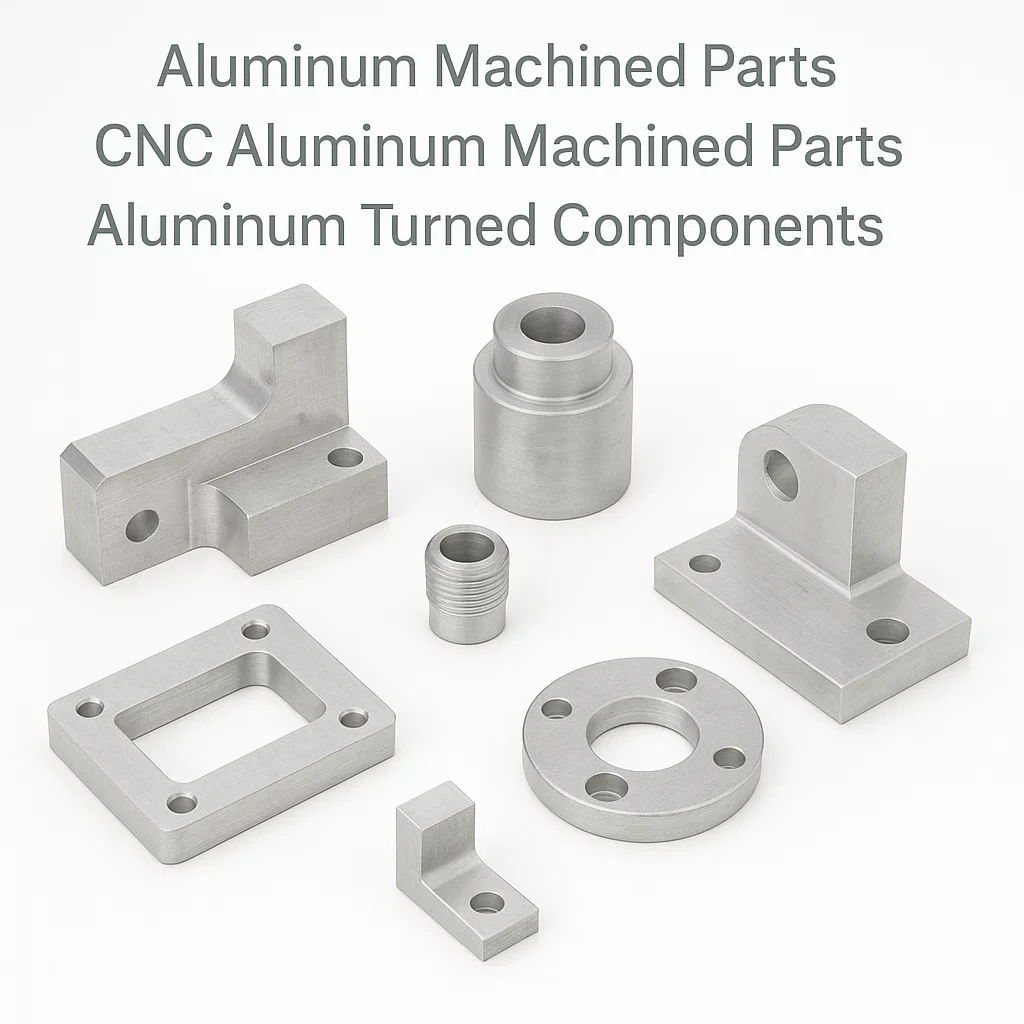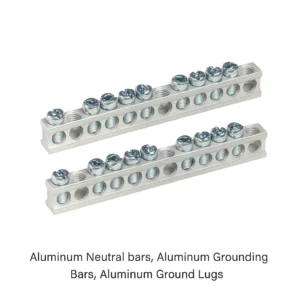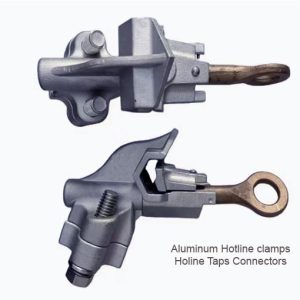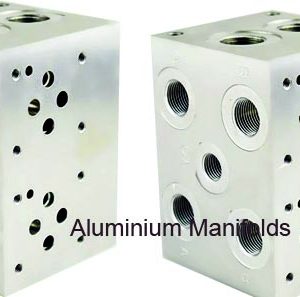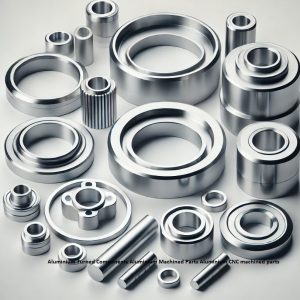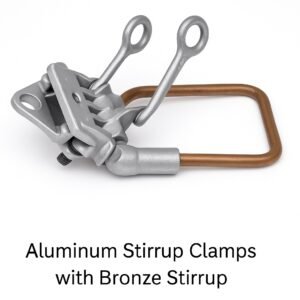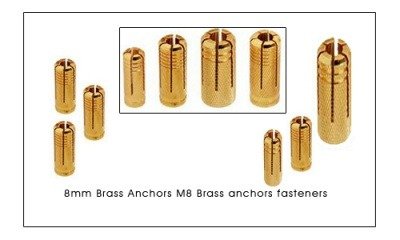Aluminum Machined Parts, Aluminum CNC Machined Components, Aluminum Turned Components, Aluminum Screw Machine Parts


Aluminum Machined Parts | CNC Aluminum Turned Components | Precision Milled Parts Manufacturing
We are one of the leading manufacturers and exporters of Aluminum Machined Parts, CNC Aluminum Machined Parts, Aluminum Turned Components, Aluminum Milled Parts, and Aluminum Precision Components from India. We have been supplying high-quality Aluminum precision machined parts to the world market for many decades. Our state-of-the-art manufacturing facility is equipped with advanced CNC machining centers, precision turning machines, multi-axis milling equipment, and automated Swiss-type screw machines that enable us to produce complex Aluminum components with exceptional accuracy and repeatability. With over three decades of global manufacturing experience, we have established ourselves as a trusted partner for industries requiring precision Aluminum machined parts including aerospace, defense, automotive, medical devices, telecommunications, electrical equipment, instrumentation, oil and gas, semiconductor manufacturing, and industrial automation sectors. Our engineering team comprises highly skilled machinists, quality control specialists, and technical experts who work collaboratively with customers to optimize designs for manufacturability, reduce production costs, and ensure components meet or exceed stringent international quality standards including ISO 9001:2015, AS9100D for aerospace applications, and IATF 16949 for automotive components. We specialize in both high-volume production runs and low-volume prototype machining with flexibility to accommodate rush orders, just-in-time delivery requirements, and custom packaging solutions with customer logos and branding.
We have been manufacturing and exporting Aluminum Machined parts, CNC Aluminum Machined parts, Aluminum Turned Component, Aluminum Screw machine parts, Aluminum Milled parts, Aluminum precision CNC machining , Aluminum Milled parts and components, Aluminum Turned parts fo last 30 years.
Comprehensive Overview of Aluminum Machined Parts and CNC Manufacturing Capabilities
Aluminum Machined Parts represent a critical category of precision-engineered components manufactured through various subtractive manufacturing processes including CNC turning, CNC milling, Swiss-type screw machining, multi-axis machining, EDM (Electrical Discharge Machining), and precision grinding operations. Aluminum, being a lightweight yet durable non-ferrous metal with excellent machinability characteristics, thermal conductivity properties, corrosion resistance, and favorable strength-to-weight ratio, has become the material of choice for countless industrial applications across diverse sectors. Our comprehensive Aluminum machining capabilities encompass working with all commercial Aluminum alloy grades, heat-treated Aluminum materials, casting alloys, and wrought Aluminum bar stock to produce complex geometries, tight-tolerance components, and surface-critical parts. The versatility of Aluminum as a machining material allows for rapid material removal rates, extended tool life, superior surface finishes without secondary operations, and the ability to hold extremely tight dimensional tolerances down to ±0.005mm (±0.0002 inches) for critical features. We process Aluminum components ranging from miniature precision parts weighing less than one gram to large structural components weighing several kilograms, with capabilities to machine diameters from 0.5mm to 500mm and lengths up to 1500mm depending on the manufacturing process employed.
CNC Aluminum Machined Parts are produced using Computer Numerical Control technology that provides unparalleled precision, repeatability, and complexity in component manufacturing. Our CNC machining centers include 3-axis vertical machining centers, 4-axis horizontal machining centers, and 5-axis simultaneous machining centers capable of producing intricate Aluminum parts with complex contours, undercuts, pockets, and three-dimensional profiles in a single setup, thereby eliminating multiple handling operations and maintaining superior geometric accuracy. CNC Aluminum machining offers distinct advantages including consistent quality across production batches, reduced human error, capability to produce complex organic shapes, integration with CAD/CAM software for seamless design-to-production workflow, and the ability to implement design changes rapidly through program modifications without expensive tooling changes. Our CNC programming specialists utilize advanced CAM software including Mastercam, PowerMill, and Fusion 360 to generate optimized tool paths that minimize cycle times, reduce tool wear, and maximize material utilization. We employ high-performance cutting tools with specialized coatings, high-pressure coolant delivery systems, and rigid machine tool construction to achieve superior surface finishes (Ra 0.4 to 3.2 micrometers) directly from the machining process, often eliminating the need for secondary finishing operations.
Aluminum Turned Components are cylindrical or rotational parts produced on CNC turning centers and precision lathes where the workpiece rotates while cutting tools remove material to create features such as external diameters, internal bores, threads, grooves, tapers, spherical profiles, and complex contours. Our turning capabilities include conventional CNC lathes with live tooling, Swiss-type CNC turning centers for long, slender parts with excellent straightness and concentricity, and multi-spindle turning machines for high-volume production. Aluminum turning operations excel at producing parts such as shafts, bushings, spacers, pins, fittings, connectors, valve bodies, instrument housings, and cylindrical enclosures with exceptional surface finish and dimensional accuracy. The turning process is particularly economical for axisymmetric components and offers advantages including faster cycle times compared to milling for rotational features, excellent concentricity and perpendicularity, capability to hold tight diameter tolerances of ±0.01mm, and superior surface finishes that often meet functional requirements without additional finishing. Our turning department operates CNC lathes from leading manufacturers including DMG Mori, Mazak, Okuma, and Haas, with bar capacity ranging from 3mm to 200mm diameter and chuck capacity up to 400mm diameter for larger flanged or irregular-shaped components.
Aluminum Screw Machine Parts are precision components manufactured on Swiss-type automatic screw machines and CNC Swiss turning centers, which are specialized machine tools designed to produce small-diameter, high-precision parts with excellent straightness, concentricity, and surface finish. Swiss-type machining is ideal for producing long, slender Aluminum parts (length-to-diameter ratios exceeding 10:1) such as pins, shafts, terminals, connectors, medical device components, and electronic hardware where conventional turning would result in deflection and poor dimensional control. The Swiss machining process supports the workpiece immediately adjacent to the cutting zone using a guide bushing, virtually eliminating deflection and allowing extremely tight tolerances to be maintained even on small-diameter features. Our Swiss-type machining centers are equipped with multiple tool stations, live tooling capabilities, and sub-spindle operations enabling complete part production in a single cycle including turning, milling, drilling, threading, grooving, and parting-off operations. This single-setup capability ensures superior concentricity between features and eliminates secondary operations, reducing overall manufacturing costs and lead times.
Aluminum Milled Parts encompass components manufactured through milling operations where rotating multi-point cutting tools remove material from stationary or indexed workpieces to create features such as flat surfaces, pockets, slots, contours, holes, and complex three-dimensional geometries. Milling is the preferred process for producing Aluminum parts with flat surfaces, square or rectangular configurations, pockets, keyways, and complex sculptured surfaces that cannot be efficiently produced through turning operations. Our milling capabilities include conventional CNC vertical machining centers for general-purpose work, horizontal machining centers with pallet changers for high-volume production, and 5-axis machining centers for complex aerospace and medical components requiring simultaneous multi-axis interpolation. Aluminum’s excellent machinability characteristics make it ideal for high-speed milling operations using carbide or PCD (Polycrystalline Diamond) cutting tools at spindle speeds exceeding 15,000 RPM, resulting in rapid material removal rates and outstanding surface finishes. We regularly produce Aluminum milled components including enclosures, mounting plates, brackets, manifolds, heat sinks, valve bodies, instrument panels, and complex structural parts for industries ranging from electronics to aerospace.
Aluminum Precision CNC Machining represents our core competency in producing high-accuracy components meeting stringent dimensional, geometric, and surface finish requirements for critical applications. Precision machining typically refers to parts requiring tolerances tighter than ±0.025mm (±0.001 inch), flatness and parallelism within 0.01mm, surface finishes better than 1.6 micrometers Ra, and geometric tolerances conforming to ASME Y14.5 or ISO 1101 standards. Our precision machining processes incorporate temperature-controlled production environments, calibrated measuring equipment traceable to national standards, in-process inspection protocols, and statistical process control methodologies to ensure consistent quality. We utilize high-precision machine tools with thermal compensation, anti-vibration foundations, and linear scale feedback systems providing positioning accuracy to ±0.002mm. Precision Aluminum machining finds applications in aerospace structures, medical implants and surgical instruments, optical mounting systems, metrology equipment, semiconductor manufacturing tooling, and high-performance automotive components where dimensional accuracy directly impacts function, assembly, and performance.
Aluminum Milled Parts and Components produced in our facility serve diverse industrial sectors requiring Aluminum’s unique combination of properties including lightweight construction (density 2.7 g/cm³ compared to steel’s 7.8 g/cm³), excellent corrosion resistance particularly in marine and chemical environments, superior thermal conductivity for heat dissipation applications, electrical conductivity for electronic enclosures and bus bars, non-magnetic properties for instrumentation and electronic applications, and aesthetic appeal with various surface treatments available. Common milled Aluminum components include heat sinks with complex fin geometries for electronic cooling, manifold blocks with intricate internal passages for hydraulic and pneumatic systems, precision enclosures for electronic equipment requiring EMI shielding, mounting brackets and structural components for aerospace and automotive applications, and complex mold components for plastics and die-casting industries. Our milling department utilizes cutting-edge tooling strategies including high-efficiency milling, trochoidal tool paths, and dynamic milling techniques that reduce cycle times by 30-50% compared to conventional milling approaches while extending tool life and improving surface quality.
Aluminum Turned Parts manufactured in our turning department encompass a wide range of cylindrical and rotationally symmetric components serving mechanical, electrical, and structural functions across industries. Typical turned Aluminum parts include precision shafts and spindles for motion control systems, bushings and bearings housings requiring precise bore diameters and surface finishes, spacers and standoffs for electronic assemblies, threaded connectors and fittings for pneumatic and hydraulic systems, valve bodies and actuator components, instrument housings and enclosures with tight diameter tolerances, coupling components for mechanical power transmission, and decorative knobs and handles requiring aesthetic surface treatments. Our turning operations leverage Aluminum’s excellent machinability to achieve very high surface finish quality (often 0.8 micrometers Ra or better) directly from the turning process without secondary polishing or lapping operations. We routinely hold diameter tolerances of ±0.01mm on critical features, concentricity within 0.02mm TIR, and perpendicularity of end faces within 0.015mm across the diameter. Thread forms including metric (ISO), unified (UN/UNC/UNF), British standard (BSW/BSF), pipe threads (NPT/BSPT), and custom forms are produced to class 2A or better accuracy using form tools, thread mills, or single-point threading operations depending on thread specifications and production volume.
Aluminum Alloy Material Grades and International Specifications
Our machining capabilities encompass the complete range of wrought and cast Aluminum alloys used in industrial applications. We maintain inventory of commonly specified grades and can procure specialized alloys for specific customer requirements.
| Aluminum Grade | International Equivalents | Key Properties | Typical Applications |
|---|---|---|---|
| 6061-T6 Aluminum | AlMg1SiCu (EN), A96061 (ASTM), H20 (JIS), LG61 (China) | Excellent machinability, good strength, corrosion resistant, weldable | Structural components, marine fittings, automotive parts, aerospace structures |
| 6082-T6 Aluminum | AlSi1MgMn (EN), H30 (JIS), LD31 (China) | Higher strength than 6061, excellent corrosion resistance, good formability | Bridge components, crane structures, transport applications |
| 7075-T6 Aluminum | AlZn5.5MgCu (EN), A97075 (ASTM), A7075 (JIS), LC4 (China) | Very high strength, excellent fatigue resistance, aerospace grade | Aircraft structures, aerospace fittings, high-stress components, defense applications |
| 2024-T3 Aluminum | AlCu4Mg1 (EN), A92024 (ASTM), A2024 (JIS), LY12 (China) | High strength, excellent fatigue properties, good machinability | Aircraft fuselage, aerospace structures, military applications |
| 5083-H111 Aluminum | AlMg4.5Mn0.7 (EN), A95083 (ASTM), A5083 (JIS), LF21 (China) | Excellent corrosion resistance, good weldability, marine grade | Marine applications, shipbuilding, pressure vessels, cryogenic tanks |
| 2011-T3 Aluminum | AlCu6BiPb (EN), A92011 (ASTM), Free-cutting alloy | Best machinability, free-machining alloy with Bi and Pb additions | Screw machine parts, high-volume production, complex turned components |
| 6063-T5 Aluminum | AlMg0.7Si (EN), A96063 (ASTM), H18 (JIS), LD30 (China) | Excellent extrudability, good surface finish, moderate strength | Architectural extrusions, enclosures, trim, decorative components |
| 7050-T7451 Aluminum | AlZn6CuMgZr (EN), A97050 (ASTM), Aerospace alloy | Very high strength, excellent stress corrosion resistance, aerospace certified | Aerospace structural components, thick-section aircraft parts |
| 2014-T6 Aluminum | AlCu4SiMg (EN), A92014 (ASTM), A2014 (JIS), LY11 (China) | High strength, good machinability, heat treatable | Heavy-duty forgings, aircraft fittings, truck wheels, structural members |
| 5052-H32 Aluminum | AlMg2.5 (EN), A95052 (ASTM), A5052 (JIS), LF2 (China) | Good corrosion resistance, good workability, weldable | Sheet metal work, marine components, fuel tanks, hydraulic tubes |
Manufacturing Processes and Advanced Machining Technologies
Our comprehensive manufacturing capabilities incorporate multiple precision machining processes, each optimized for specific component geometries, production volumes, and quality requirements. CNC Turning Operations utilize computer-controlled lathes ranging from 2-axis to 12-axis multi-tasking machines capable of complete part production in single setup. We employ turning strategies including roughing, finishing, grooving, threading, boring, drilling, and parting operations with cutting speeds optimized for specific Aluminum alloys. CNC Milling Operations encompass 3-axis vertical machining centers for general components, 4-axis horizontal machining centers with tombstone fixtures for batch production, and 5-axis simultaneous machining centers for complex aerospace components requiring multi-face machining without repositioning. Swiss-Type Screw Machining produces high-precision small diameter parts with excellent concentricity using guide bushing support and multi-axis tool configurations. EDM (Electrical Discharge Machining) capabilities include wire EDM for intricate profiles and sharp internal corners, and sinker EDM for complex cavity geometries in hardened Aluminum alloys. Precision Grinding Operations provide final dimensional accuracy and surface finish for critical components including cylindrical grinding, surface grinding, and jig grinding for extreme precision requirements. Secondary Operations available include deburring (tumble finishing, abrasive blasting, hand deburring), thread forming (tapping, thread milling, thread rolling), heat treatment services (solution treatment, artificial aging, stress relieving), and assembly operations including pressing bearings, installing inserts, and sub-assembly integration.
| Manufacturing Process | Machinery Used | Typical Tolerances | Surface Finish Achievable |
|---|---|---|---|
| CNC Turning | DMG Mori NLX Series, Mazak Quick Turn, Okuma LB Series, Haas ST Series | ±0.010mm to ±0.025mm | 0.8 to 1.6 μm Ra |
| CNC Milling (3-Axis) | Haas VF Series, Mazak VTC Series, DMG Mori CMX V Series | ±0.025mm to ±0.050mm | 1.6 to 3.2 μm Ra |
| 5-Axis Machining | DMG Mori DMU Series, Mazak Variaxis, Hermle C Series | ±0.015mm to ±0.030mm | 0.8 to 1.6 μm Ra |
| Swiss-Type Turning | Citizen Cincom, Tsugami B038, Star SR Series | ±0.005mm to ±0.015mm | 0.4 to 0.8 μm Ra |
| Precision Grinding | Studer S Series, Jones & Shipman, Mitsui Surface Grinder | ±0.002mm to ±0.005mm | 0.2 to 0.4 μm Ra |
| Wire EDM | Mitsubishi MV Series, Makino U Series, Sodick VL Series | ±0.003mm to ±0.008mm | 0.4 to 1.0 μm Ra |
Typical Aluminum Machined and Milled Parts for Industrial and Electrical Applications
Our manufacturing portfolio encompasses an extensive range of Aluminum precision components serving mechanical, electrical, electronic, hydraulic, pneumatic, and structural applications across diverse industrial sectors.
Electrical and Electronic Components: Terminal blocks and connection housings, electrical bus bars and conductor blocks, EMI/RFI shielding enclosures, heat sink assemblies with complex fin geometries, electronic equipment chassis and panels, instrument housings for measurement devices, cable glands and strain relief fittings, junction boxes for industrial wiring, switch gear mounting plates, transformer mounting brackets, power distribution manifolds, LED lighting heat sinks, circuit breaker housings, electrical conduit fittings, grounding blocks and terminals, cable lugs and connectors, motor terminal boxes, sensor mounting brackets, control panel enclosures, electrical plug housings.
Mechanical and Industrial Components: Precision shafts and axles for motion control, bearing housings and retention caps, coupling halves and adapters, spacers and standoffs, mounting brackets and support fixtures, machine tool components, precision gears (milled or hobbed), pulley wheels and timing belt components, valve bodies and actuator housings, manifold blocks with internal passages, pneumatic and hydraulic fittings, cylinder barrels and end caps, piston rods and guide bushings, linear bearing rails and carriages, ball screw nuts and mounting blocks, robot arm components, automation equipment parts, conveyor system components, packaging machine parts, pump housings and impellers.
Aerospace and Defense Components: Aircraft structural fittings and brackets, landing gear components, actuator housings and mounting blocks, hydraulic system manifolds, fuel system components, avionics mounting plates, interior trim and seat components, wing rib sections, fuselage frames and stringers, missile guidance system housings, communication equipment enclosures, radar mounting brackets, optical system housings, precision telescope components.
Automotive and Transportation Components: Engine mounting brackets, transmission housing components, suspension system parts, fuel rail assemblies, intake manifold components, throttle body housings, sensor mounting brackets, brake system components, steering column parts, wheel spacers and adapters, electric vehicle battery enclosures, charging system components, cooling system fittings.
Medical and Laboratory Equipment: Surgical instrument components, prosthetic device parts, diagnostic equipment housings, laboratory automation components, fluid handling manifolds, precision syringe components, dental equipment parts, imaging system mounts, medical device enclosures, sterilization equipment components.
Instrumentation and Metrology: Precision gage blocks and standards, optical bench components, microscope stages and mounts, measurement probe housings, calibration fixtures, test equipment enclosures, sensor mounting blocks, fixture plates and tooling bases, coordinate measuring machine components.
Surface Finishing and Plating Options for Aluminum Components
Surface finishing plays a critical role in enhancing the performance, aesthetics, and longevity of Aluminum machined parts. Our comprehensive finishing capabilities include both decorative and functional treatments conforming to international standards including ASTM B580, MIL-A-8625, AMS 2469, ISO 7599, and BS 1615.
| Finish Type | Process Description | Typical Thickness | Key Benefits | Standards |
|---|---|---|---|---|
| Clear Anodizing | Electrochemical oxidation creating protective oxide layer | 5-25 microns | Excellent corrosion resistance, hard surface, maintains Aluminum appearance | MIL-A-8625 Type II, ASTM B580 |
| Hard Anodizing | Thick anodic coating for wear resistance applications | 25-100 microns | Extreme hardness (400-600 HV), excellent wear resistance, corrosion protection | MIL-A-8625 Type III, AMS 2469 |
| Color Anodizing | Anodizing with dye incorporation for aesthetic finish | 10-25 microns | Decorative appearance, corrosion resistant, available in various colors | ASTM B580, ISO 7599 |
| Chromate Conversion (Alodine) | Chemical conversion coating forming thin chromate layer | 0.5-2.5 microns | Excellent paint adhesion base, electrical conductivity, corrosion protection | MIL-DTL-5541, ASTM B449 |
| Powder Coating | Electrostatic application of polymer powder with thermal curing | 50-100 microns | Excellent durability, wide color range, chemical resistance, aesthetic finish | ASTM D3363, ISO 2409 |
| Electroless Nickel | Autocatalytic nickel-phosphorus deposition | 5-25 microns | Uniform thickness, excellent corrosion resistance, hard surface, solderable | ASTM B733, AMS 2404 |
| Passivation | Chemical treatment removing free iron and enhancing oxide layer | < 0.1 micron | Improved corrosion resistance, clean surface, maintains dimensions | ASTM B912, AMS 2700 |
| Bead Blasting | Abrasive media blasting for uniform matte appearance | Surface texture | Uniform matte finish, stress relief, cleaning, decorative appearance | SAE AMS-S-13165 |
| Electropolishing | Electrochemical material removal for smooth, bright surface | 5-15 microns removed | Bright mirror finish, burr removal, enhanced corrosion resistance, clean surface | ASTM B912, AMS 2700 |
| Zinc Nickel Plating | Electroplated zinc-nickel alloy coating on Aluminum | 5-12 microns | Superior corrosion resistance, automotive applications, RoHS compliant | ASTM B841, LN9021 |
Quality Standards, Tolerances, and Inspection Capabilities
Quality assurance forms the foundation of our manufacturing philosophy. Our quality management system is certified to ISO 9001:2015 with additional approvals for AS9100D (aerospace quality management), IATF 16949 (automotive quality), and ISO 13485 (medical devices) ensuring comprehensive quality control throughout the manufacturing process. Our climate-controlled inspection department maintains ambient temperature of 20°C ±1°C conforming to ISO 1 standards for dimensional measurement. Inspection Equipment includes Mitutoyo Coordinate Measuring Machines (CMM) with measuring volume up to 1000 x 1200 x 800mm and accuracy to 2.5 + L/300 microns, Keyence optical comparators and profile projectors for 2D geometry verification, Mitutoyo micrometers and height gages with 0.001mm resolution, surface roughness testers (Mitutoyo Surftest), hardness testers (Rockwell, Brinell, Vickers), and optical microscopes for surface defect analysis. Dimensional Tolerance Capabilities routinely achieved include linear dimensions ±0.010mm to ±0.025mm for standard machining, ±0.005mm to ±0.010mm for precision Swiss machining, ±0.002mm to ±0.005mm for ground components, diameter tolerances of ±0.008mm to ±0.015mm, hole position tolerances within ±0.015mm, flatness and parallelism within 0.010mm across 100mm, perpendicularity within 0.015mm, concentricity within 0.020mm TIR, and surface finish routinely maintained between 0.8 to 3.2 micrometers Ra depending on process. Geometric Dimensioning and Tolerancing (GD&T) per ASME Y14.5-2018 and ISO 1101:2017 standards are fully supported including position, profile, runout, and form tolerances. All critical dimensions are inspected and documented with first article inspection reports (FAIR) conforming to AS9102 or similar standards, certificate of conformance (CoC), material test certificates (MTC) with full traceability to mill certificates, and dimensional inspection reports with actual measurements.
| Feature Type | Standard Tolerance | Precision Tolerance | Inspection Method |
|---|---|---|---|
| External Diameters (Turned) | ±0.025mm | ±0.008mm | CMM, Micrometer, Air Gaging |
| Internal Diameters (Bored) | ±0.030mm | ±0.010mm | CMM, Bore Gage, Air Gaging |
| Linear Dimensions (Milled) | ±0.050mm | ±0.015mm | CMM, Vernier Caliper, Height Gage |
| Hole Position | ±0.050mm | ±0.015mm | CMM, Optical Comparator |
| Flatness | 0.030mm per 100mm | 0.010mm per 100mm | CMM, Surface Plate, Dial Indicator |
| Parallelism | 0.030mm | 0.010mm | CMM, Parallel Bars |
| Perpendicularity | 0.040mm | 0.015mm | CMM, Cylindrical Square |
| Concentricity / Runout | 0.050mm TIR | 0.020mm TIR | CMM, Dial Indicator on V-Block |
| Thread Accuracy | Class 2B / 6H | Class 3B / 5H | Thread Gages, CMM, Optical Comparator |
| Surface Roughness | 1.6 to 3.2 μm Ra | 0.4 to 0.8 μm Ra | Surftest Profilometer |
Production Capacity, Lead Time, and Turnaround
Our manufacturing facility operates with flexible production scheduling to accommodate varying customer requirements from prototype quantities to high-volume production runs. Typical Production Lead Time for standard Aluminum machined components ranges from 4 to 6 weeks from purchase order receipt to shipment, depending on part complexity, material availability, surface finish requirements, and inspection specifications. Expedited Production Services are available for urgent requirements with accelerated turnaround of 2 to 3 weeks for standard components and 7 to 10 working days for simple turned or milled parts where material is readily available in stock. Prototype Machining Services provide rapid turnaround of sample parts typically within 5 to 7 working days for design verification, functional testing, and pre-production evaluation. Production Capacity accommodates batch sizes from single prototype pieces to production runs exceeding 100,000 pieces annually per component, with capability to scale production based on demand forecasts. Our manufacturing planning system utilizes MRP II software for material procurement, capacity planning, and delivery scheduling ensuring on-time delivery performance exceeding 95%. We maintain safety stock of commonly used Aluminum alloys including 6061-T6, 7075-T6, 2024-T3, and 2011-T3 in various diameter bar stock from 3mm to 200mm enabling faster production start without material procurement delays. Just-In-Time (JIT) Delivery arrangements can be established for repeat production orders with blanket purchase orders, scheduled releases, and Kanban-based replenishment ensuring optimal inventory management for customers. Rush Order Services with premium scheduling are available for critical requirements with guaranteed delivery commitments and daily progress updates throughout production.
Industries and Applications Served Worldwide
Our Aluminum precision machined components serve critical applications across numerous industrial sectors globally. Aerospace and Aviation Industry applications include aircraft structural components, landing gear parts, avionics mounting systems, actuator housings, fuel system components, and interior cabin fittings conforming to AS9100D quality standards and NADCAP approvals. Defense and Military Sector encompasses weapon system components, communication equipment housings, vehicle armor mounting systems, optical and sensor housings, and electronic warfare equipment meeting MIL-SPEC requirements. Automotive Industry includes engine components, transmission parts, suspension systems, brake assemblies, electric vehicle battery enclosures, and charging infrastructure components certified to IATF 16949 standards. Medical Device Manufacturing serves surgical instruments, diagnostic equipment, prosthetic components, laboratory automation systems, and imaging equipment housings conforming to ISO 13485 and FDA requirements. Electronics and Telecommunications sectors utilize our heat sinks, EMI/RFI shielding enclosures, equipment chassis, antenna mounting systems, and connector housings. Industrial Automation and Robotics applications include precision actuators, servo motor housings, sensor mounts, machine vision system components, and end-effector tooling. Oil and Gas Industry encompasses valve components, manifold blocks, pressure vessel fittings, instrumentation housings, and offshore equipment parts meeting NACE corrosion resistance standards. Renewable Energy Sector includes solar panel mounting systems, wind turbine components, energy storage system enclosures, and power distribution equipment. Marine and Shipbuilding applications utilize our corrosion-resistant Aluminum components for deck fittings, navigation equipment housings, propulsion system parts, and structural components conforming to Lloyd’s Register and ABS specifications. Instrumentation and Metrology sectors depend on our precision components for measurement equipment, calibration standards, optical benches, and laboratory automation systems requiring exceptional dimensional accuracy and stability.
Material Properties and Technical Specifications
| Property | 6061-T6 | 7075-T6 | 2024-T3 | 5083-H111 | Test Method |
|---|---|---|---|---|---|
| Density (g/cm³) | 2.70 | 2.81 | 2.78 | 2.66 | ASTM B311 |
| Tensile Strength (MPa) | 310 | 570 | 470 | 290 | ASTM E8 |
| Yield Strength (MPa) | 275 | 505 | 325 | 145 | ASTM E8 |
| Elongation (%) | 12-17 | 11 | 18 | 16 | ASTM E8 |
| Hardness (Brinell HB) | 95 | 150 | 120 | 85 | ASTM E10 |
| Modulus of Elasticity (GPa) | 68.9 | 71.7 | 73.1 | 70.3 | ASTM E111 |
| Thermal Conductivity (W/m·K) | 167 | 130 | 121 | 117 | ASTM E1461 |
| Coefficient of Thermal Expansion (µm/m·K) | 23.6 | 23.4 | 22.9 | 23.8 | ASTM E228 |
| Electrical Conductivity (% IACS) | 43 | 33 | 30 | 29 | ASTM B193 |
| Melting Point (°C) | 582-652 | 477-635 | 502-638 | 570-638 | ASTM E794 |
Why Choose Our Aluminum Machining Services – Competitive Advantages and Unique Selling Propositions
Three Decades of Global Manufacturing Excellence positions us as a trusted partner with extensive experience serving customers across North America, Europe, Asia-Pacific, and Middle East markets. Our engineering team has accumulated deep domain expertise across aerospace, automotive, medical, defense, and industrial sectors enabling us to provide valuable design-for-manufacturability insights that optimize part geometry, reduce manufacturing costs, and improve product performance. Advanced Manufacturing Technology Investment ensures we maintain cutting-edge capabilities with recent capital investments exceeding $3 million USD in state-of-the-art CNC machining centers, Swiss-type turning machines, 5-axis simultaneous machining equipment, and automated inspection systems providing technological advantages in precision, efficiency, and quality consistency. Engineering Support and Technical Consultation differentiates our service with dedicated application engineers who collaborate with customers from initial concept through production, offering design optimization recommendations, material selection guidance, manufacturing process consultation, and tolerance analysis using finite element analysis (FEA) and computational fluid dynamics (CFD) tools when applicable.
Flexibility and Customization Capabilities accommodate unique customer requirements including custom material sourcing, specialized heat treatment processes, proprietary surface finishes, complex assembly operations, and integrated testing services eliminating the need for multiple suppliers and reducing overall project timelines. Responsive Communication and Project Management provide customers with dedicated account managers, weekly production status updates, online order tracking portals, and 24-hour email response commitment ensuring transparency throughout the manufacturing cycle. Our multilingual team provides technical support in English, German, French, Spanish, Japanese, and Mandarin facilitating seamless communication with international customers. Quality Certifications and Compliance demonstrate our commitment to excellence with ISO 9001:2015, AS9100D aerospace quality management, IATF 16949 automotive quality system, ISO 13485 medical device quality management, and RoHS/REACH compliance for European markets ensuring our manufacturing processes meet the most stringent industry standards.
Competitive Pricing from Indian Manufacturing leverages cost advantages of precision manufacturing in India while maintaining international quality standards, typically offering 25-40% cost savings compared to North American or European suppliers without compromising quality, delivery, or service. Customized Packaging Solutions protect components during international shipping with options including vacuum-sealed bags with desiccant, custom foam inserts, corrugated cartons with shock indicators, wooden crates for large components, and branded packaging with customer logos and part identification labels. Supply Chain Reliability ensures consistent material availability through established relationships with certified Aluminum suppliers including Hindalco Industries, Arconic, Aleris International, and China Aluminum Corporation providing access to prime certified material with full mill test certificates and chemical analysis reports. Intellectual Property Protection safeguards customer designs with comprehensive non-disclosure agreements, secure data management systems, restricted access to engineering documentation, and employee confidentiality training providing peace of mind for proprietary component designs.
Scalable Production Capabilities accommodate business growth from initial prototype quantities through high-volume production with seamless transition, consistent quality, and predictable pricing across volume tiers. Environmental Sustainability reflects our corporate responsibility with ISO 14001 environmental management certification, comprehensive recycling programs for Aluminum swarf recovering over 95% of machining waste, water-based cutting fluids minimizing environmental impact, energy-efficient manufacturing equipment, and solar power generation offsetting 40% of facility electrical consumption.
Comprehensive Technical Question and Answer Session
Question 1: What is the minimum order quantity for custom Aluminum CNC machined parts?
We accommodate orders ranging from single prototype pieces for design verification to high-volume production runs exceeding 100,000 pieces annually. For prototype and low-volume production (1-50 pieces), we offer competitive per-piece pricing without minimum order requirements. Production quantities above 100 pieces typically qualify for volume discounts with price breaks at 250, 500, 1000, 2500, and 5000+ piece levels depending on part complexity and machining time requirements.
Question 2: How do you ensure dimensional accuracy and quality control for precision Aluminum turned components?
Our quality assurance system incorporates multiple verification stages including first-article inspection on Coordinate Measuring Machine (CMM) with full dimensional report, in-process inspection at critical operation stages using calibrated measurement equipment, statistical process control (SPC) monitoring with control charts for critical dimensions, and final inspection with 100% visual inspection and sampling dimensional verification conforming to AQL standards. All measuring equipment is calibrated annually against NIST-traceable standards with calibration certificates maintained in our quality management system.
Question 3: Can you machine Aluminum castings in addition to bar stock materials?
Yes, we regularly machine Aluminum die castings, sand castings, permanent mold castings, and investment castings to add precision features, improve surface finish, and achieve tight tolerances that cannot be cast directly. Common casting machining operations include face milling parting lines, boring precision holes, drilling and tapping threaded holes, milling mounting surfaces to specified flatness, and removing gating systems. We work with casting alloys including A356-T6, A380, 383, 413, and 535 providing complete machining solutions for cast components.
Question 4: What surface roughness can you achieve on Aluminum milled parts without secondary operations?
Surface finish achieved directly from milling operations depends on cutting parameters, tool geometry, and Aluminum alloy characteristics. Using sharp carbide or PCD cutting tools with optimized feeds and speeds, we routinely achieve surface finishes of 1.6 micrometers Ra on horizontal surfaces and 0.8 micrometers Ra on vertical surfaces. For applications requiring superior finish, we employ high-speed finishing passes with ballnose cutters achieving 0.4 to 0.6 micrometers Ra suitable for optical mounting surfaces and sealing faces without polishing or lapping operations.
Question 5: Do you provide material certificates and traceability documentation with Aluminum machined components?
Yes, complete material traceability is provided with every shipment including mill test certificates (MTC) showing chemical composition analysis, mechanical properties testing results per ASTM standards, heat treatment certifications for precipitation hardened alloys, certificate of conformance (CoC) certifying compliance with drawing specifications, and first article inspection report (FAIR) for new part numbers or engineering changes. Material certificates trace back to original ingot cast number ensuring full supply chain traceability required for aerospace, medical, and defense applications.
Question 6: Can you handle emergency or rush orders for Aluminum precision parts?
We maintain capacity reservation for expedited orders and can accommodate rush production requirements. Emergency orders receive priority scheduling with dedicated machine time allocation, accelerated inspection processes, and expedited shipping arrangements. Typical rush lead times range from 48 hours for simple turned parts from stock material to 7-10 working days for complex milled components requiring special tooling. We communicate realistic delivery commitments upfront and provide daily progress updates throughout expedited production cycles.
Question 7: What tolerances can you hold on threaded features in Aluminum components?
Thread accuracy depends on thread size, pitch, and machining method employed. For standard metric and unified threads, we routinely achieve Class 2B (internal) and Class 2A (external) thread fit conforming to ASME B1.1 standard using thread milling or form tapping operations. For precision applications requiring Class 3B/3A fit with tighter tolerances on pitch diameter and thread form, we utilize thread grinding or single-point thread turning with multiple finish passes. Thread gages verify all threaded features with go/no-go gaging or optical comparator verification for critical applications.
Question 8: How do you prevent galvanic corrosion when Aluminum parts interface with Steel or Stainless Steel components?
Galvanic corrosion prevention strategies include applying protective surface treatments such as anodizing (Type II or Type III), alodine chromate conversion coating, or electroless nickel plating that electrically isolates the Aluminum surface from dissimilar metals. Additional protection methods include using non-conductive isolation washers or bushings at mounting interfaces, applying anti-seize compounds with barrier properties, using stainless steel fasteners rather than plain steel, and designing assemblies to prevent moisture ingress at dissimilar metal junctions. We provide corrosion prevention recommendations during design review stages.
Question 9: Can you provide assistance with design optimization for improved machinability and cost reduction?
Our engineering team offers comprehensive design-for-manufacturability (DFM) analysis identifying opportunities to optimize part geometry, reduce machining complexity, minimize material waste, and lower production costs while maintaining functional requirements. Common DFM recommendations include eliminating sharp internal corners that require small diameter tools, standardizing hole sizes to common drill dimensions, adjusting wall thickness for improved rigidity during machining, relocating features to reduce setups, and tolerancing only critical dimensions to precision levels while relaxing non-functional features to standard machining tolerances reducing inspection requirements.
Question 10: What inspection reports and quality documentation do you provide with shipments?
Standard quality documentation includes certificate of conformance (CoC) certifying compliance with purchase order requirements, material test certificate with chemical analysis and mechanical properties, dimensional inspection report showing actual measurements for critical dimensions, first article inspection report (FAIR) for initial production or after engineering changes, and visual inspection certification. Additional documentation available upon request includes plating thickness reports per ASTM B487, surface roughness measurement data, hardness testing results, salt spray corrosion testing per ASTM B117, and photographic documentation of completed components.
Question 11: How do you handle international shipping and export documentation?
We have extensive experience with international freight forwarding and export compliance requirements. Shipping services include FOB Indian port, CIF (cost, insurance, freight) to destination port, or door-to-door delivery via international courier services including DHL, FedEx, and UPS. Export documentation provided includes commercial invoice, packing list, certificate of origin, bill of lading or airway bill, and any specific customs declarations required by destination country. For controlled goods requiring export licenses, we assist customers with license application documentation and compliance verification ensuring smooth customs clearance.
Question 12: What is your approach to managing engineering changes and revision control?
Our engineering change management system ensures configuration control throughout the product lifecycle. When customers issue engineering change notices (ECN) or revised drawings, we conduct formal design review comparing new versus previous revision, assess impact on manufacturing processes and tooling requirements, update our ERP system with new revision designation, and implement physical segregation of previous revision inventory preventing inadvertent shipment of obsolete parts. First article inspection is performed after implementing engineering changes with formal customer approval required before resuming production shipments. All revision history is maintained in our document management system providing complete traceability of changes.
Question 13: Can you perform secondary assembly operations such as pressing inserts or installing fasteners?
Yes, our assembly capabilities include pressing threaded inserts (PEM nuts, Heli-Coil inserts), installing self-clinching fasteners, press-fitting bearings and bushings with controlled interference fits, riveting or screwing sub-components, applying adhesives or thread locking compounds, performing leak testing for hydraulic manifolds, and conducting functional testing per customer specifications. Assembly operations are performed under documented work instructions with inspection verification ensuring proper installation torque, press fit dimensions, and functional performance before shipment.
Question 14: What heat treatment services are available for Aluminum alloys?
We work with certified heat treatment vendors providing solution heat treatment followed by artificial aging (T6 temper), stress relieving for dimensional stability, and cryogenic treatment for enhanced wear resistance. Heat treatment conformance includes temperature monitoring with calibrated thermocouples, time-at-temperature recording, and metallurgical testing verifying achieved mechanical properties meet specification requirements. Heat treatment certifications documenting furnace temperature profiles and soak times are provided with treated components ensuring traceability and compliance with aerospace specifications such as AMS 2770 and AMS 2771.
Question 15: How do you handle proprietary designs and intellectual property protection?
Intellectual property protection is paramount in our business relationships. All employees sign comprehensive confidentiality and non-disclosure agreements as condition of employment. Customer engineering drawings and technical data are stored on secure servers with password-protected access limited to authorized personnel directly involved in manufacturing specific projects. Physical security measures include restricted access to manufacturing floor, security cameras monitoring production areas, and visitor escort requirements. Upon project completion, all customer proprietary data can be returned or securely destroyed per customer instructions. We welcome customer-supplied non-disclosure agreements and maintain professional liability insurance protecting against inadvertent disclosure.
Question 16: What is your capacity for producing complex 5-axis machined Aluminum aerospace components?
Our 5-axis machining capabilities include DMG Mori and Hermle simultaneous 5-axis machining centers with working envelopes up to 800 x 600 x 500mm, suitable for complex aerospace components requiring multi-face machining without repositioning. Typical aerospace applications include turbine housings, structural brackets with compound angles, complex manifolds with intersecting passages, and airfoil profiles. All aerospace production conforms to AS9100D quality management with first article inspection reports per AS9102 standard, material traceability to PMA-approved suppliers, and special process certifications for heat treatment, NDT, and chemical processing per NADCAP requirements.
Question 17: Can you provide samples or prototypes before committing to production quantities?
Absolutely. We strongly encourage prototype production before full-scale manufacturing to verify design intent, validate fit and function, and optimize manufacturing processes. Prototype machining typically delivers 1-5 sample parts within 5-7 working days allowing customers to conduct design verification testing, assembly fit checks, and functional evaluation before authorizing production quantities. Prototype costs are competitive with tooling amortization eliminated and programming costs minimized. Customer approval of first article inspection report is obtained before transitioning to production ensuring complete alignment on quality expectations.
Customer Testimonials and Success Stories
“We have been sourcing precision Aluminum machined components from this manufacturer for over eight years and their quality, reliability, and technical expertise have been exceptional. Their engineering team provided valuable design optimization recommendations that reduced our part weight by 18% while maintaining structural integrity, resulting in significant material cost savings across our product line. The communication throughout production is outstanding with proactive updates on order status, and their on-time delivery performance exceeds 97%. Quality has been consistently excellent with defect rates below 0.2%, which is remarkable considering the tight tolerances and complex geometries we require for our aerospace applications. I highly recommend them as a strategic manufacturing partner.”
– Robert Thompson, Senior Procurement Manager, Aerospace Systems Division, Colorado, USA
“Finding a reliable supplier for our specialized Aluminum CNC turned components was challenging until we partnered with this Indian manufacturer. Their Swiss-type machining capabilities produce the small diameter precision pins and shafts we need for medical diagnostic equipment with exceptional concentricity and surface finish. What impressed us most was their willingness to accommodate our stringent cleanliness requirements, providing cleaned and individually packaged components ready for clean room assembly. The lead times are reasonable at 4-5 weeks, their pricing is very competitive compared to European suppliers we previously used, and the technical documentation provided with each shipment is comprehensive including material certificates and dimensional inspection reports. Their responsiveness to technical inquiries and engineering change requests has made them an invaluable partner in our supply chain.”
– David Mitchell, Engineering Director, Medical Devices Manufacturing, Ontario, Canada
Packaging, Labeling, and Shipping Services
Proper packaging protects precision Aluminum components during international transit ensuring arrival in perfect condition. Standard Packaging utilizes polyethylene bags with vapor phase corrosion inhibitor (VCI) for long-term storage protection, bubble wrap or foam cushioning for impact protection, individual compartments preventing part-to-part contact and surface damage, heavy-duty corrugated cartons with internal dividers, and external labeling with part numbers, quantities, and handling instructions. Custom Packaging Solutions accommodate special requirements including customer-branded boxes with logos and company information, serialized labeling with barcode or QR code tracking, kanban cards with part number and revision information, custom foam inserts protecting complex geometries, vacuum-sealed packaging with desiccant for humidity-sensitive applications, ESD-safe packaging for electronic assembly components, and military standard packaging conforming to MIL-STD-2073 for defense applications.
Shipping Methods available include sea freight (most economical for large shipments, 4-6 week transit time to North America/Europe), air freight (faster delivery, 7-10 day transit time, suitable for urgent requirements), and international express courier (DHL, FedEx, UPS for small urgent shipments, 3-5 day delivery to most global destinations). Documentation provided includes commercial invoice with harmonized tariff codes, detailed packing list with piece counts and weights, certificate of origin for preferential trade agreements, and any special certifications required for customs clearance. Insurance coverage is available for high-value shipments protecting against loss or damage during transit.
Comprehensive Glossary of Technical Terms and Industry Terminology
Related Parts:
Aluminum precision machining services, custom Aluminum CNC parts manufacturer, Aluminum turning components supplier, precision Aluminum milled parts, Aluminum screw machine products, Swiss machined Aluminum parts, 5-axis Aluminum machining, aerospace Aluminum components, automotive Aluminum parts, medical device Aluminum machining, Aluminum heat sink manufacturing, Aluminum manifold machining, precision Aluminum fittings, Aluminum valve body machining, electrical Aluminum components, Aluminum housing machining, threaded Aluminum parts, anodized Aluminum components,
Contact Us for Aluminum Precision Machining Solutions
Request a Quote for Your Aluminum Machined Parts Project
Get started today with a free quote for your precision Aluminum components!
📧 Email us your technical drawings and specifications: sales@brass-copper-parts.com
📞 Call our technical team: +91-22-43449300
💬 WhatsApp for instant response: +91-22-43449300
📄 Request our comprehensive capabilities brochure with case studies and technical specifications
Experience the difference of working with a manufacturer committed to quality, innovation, and customer success. Contact us today to discuss your Aluminum machining requirements!
Leading Manufacturer and Exporter of Precision Aluminum Machined Parts from India
ISO 9001:2015 | AS9100D | IATF 16949 | ISO 13485 Certified
Serving Global Markets for Over 30 Years

